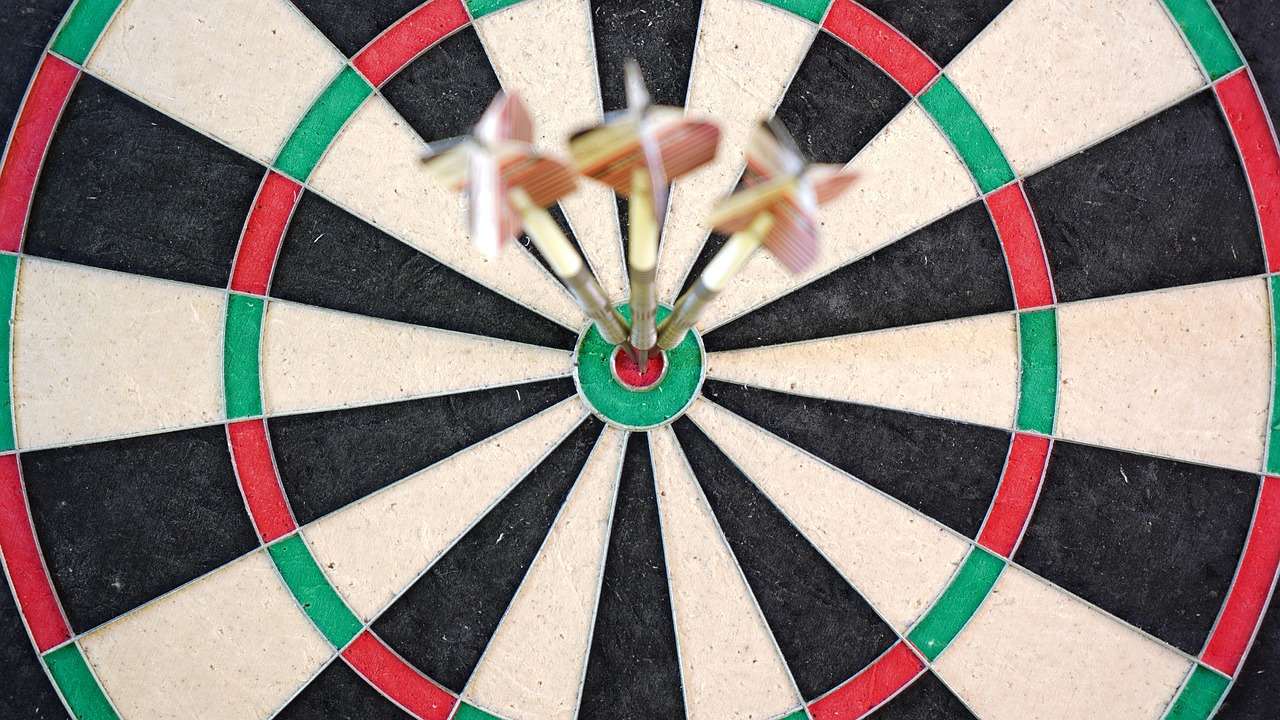Understanding the governing bodies media rights role is critical because the revenue generated significantly impacts the sport’s development, athlete compensation, and overall popularity. This article will explore how these rights are managed, negotiated, and ultimately affect the landscape of professional sports, using darts as a key example, and also explore the Business of Darts.
⚠️ Still Using Pen & Paper (or a Chalkboard)?! ⚠️
Step into the future! The Dart Counter App handles all the scoring, suggests checkouts, and tracks your stats automatically. It's easier than you think!
Try the Smart Dart Counter App FREE!Ready for an upgrade? Click above!
Understanding Governing Bodies Media Rights Role
Governing bodies in sports, such as the Professional Darts Corporation (PDC), the World Darts Federation (WDF), or FIFA in football, act as custodians of their respective games. A crucial aspect of their responsibilities is managing and selling media rights. These rights, which allow broadcasters and streaming services to transmit live matches and related content, are a significant source of income.
The value of these rights stems from the popularity of the sport, the number of potential viewers, and the perceived attractiveness of the content. For example, the PDC Sky Sports deal worth millions demonstrates the financial power involved. Successfully negotiating and managing these rights is essential for the financial health and growth of the sport.

The Importance of Media Rights Revenue
The revenue generated from selling media rights is often reinvested into the sport at various levels. This can include:
- Funding grassroots development programs
- Providing prize money for tournaments
- Supporting athlete development initiatives
- Promoting the sport to new audiences
- Covering operational costs of the governing body
Without substantial media rights revenue, many sports would struggle to maintain their professional leagues and develop future talent. The distribution of this revenue is a key responsibility of the governing body.
How Governing Bodies Negotiate Media Rights
Negotiating media rights deals is a complex process that involves several key considerations. Governing bodies aim to secure the most favorable terms possible, maximizing revenue while also ensuring broad access to the sport for fans.
Several factors influence the negotiation process:
- Sport Popularity: Sports with larger viewership and fan bases command higher fees.
- Market Size: Deals covering larger geographic regions are generally more valuable.
- Competition: The number of broadcasters and streaming services interested in acquiring the rights can drive up the price.
- Exclusivity: Exclusive rights, granting a single broadcaster the sole right to air the content, are typically more expensive.
- Term Length: Longer-term deals can provide stability but may also limit the governing body‘s ability to capitalize on future growth.
Often, governing bodies will engage expert consultants to advise them on the market value of their media rights and to assist in the negotiation process. They need to understand the darts tv rights value to secure the best deals.
Key Considerations in Media Rights Agreements
When structuring media rights agreements, governing bodies must consider various legal and commercial aspects. These include:
- Territorial Rights: Defining the geographic regions covered by the agreement.
- Platform Rights: Specifying the platforms on which the content can be broadcast (e.g., television, streaming, mobile).
- Content Rights: Clarifying the scope of the rights, including live matches, highlights, replays, and ancillary programming.
- Advertising Rights: Determining how advertising revenue will be shared between the governing body and the broadcaster.
- Intellectual Property Rights: Protecting the governing body‘s trademarks, logos, and other intellectual property.
Careful attention to these details is essential to ensure that the agreement is clear, enforceable, and protects the interests of the governing body.

The Impact of Streaming on Media Rights
The rise of streaming services has significantly altered the landscape of media rights. Streaming platforms like DAZN and Viaplay are now major players in the acquisition of sports rights, offering governing bodies new avenues for distribution and revenue generation. These platforms are influencing how darts media deals work.
Streaming offers several advantages for both governing bodies and fans:
- Increased Reach: Streaming services can reach global audiences, expanding the potential viewership for the sport.
- Flexibility: Streaming allows viewers to watch content on demand, at their convenience.
- Interactive Features: Streaming platforms can offer interactive features such as live stats, chat forums, and alternative camera angles.
- New Revenue Streams: Streaming services can generate revenue through subscriptions, advertising, and pay-per-view events.
However, streaming also presents challenges for governing bodies. These include:
- Piracy: The ease of online content sharing increases the risk of piracy.
- Fragmentation: The proliferation of streaming services can fragment the audience, making it more difficult to reach a mass audience.
- Negotiation Complexity: Negotiating with multiple streaming services can be more complex than dealing with a single broadcaster.
Navigating the Streaming Landscape
To successfully navigate the streaming landscape, governing bodies need to adopt a strategic approach. This may involve:
- Bundling Rights: Combining television and streaming rights into a single package to maximize value.
- Creating Their Own Streaming Service: Launching a dedicated streaming service to control the distribution of their content.
- Partnering with Multiple Platforms: Distributing content across multiple streaming services to reach a wider audience.
- Implementing Anti-Piracy Measures: Taking steps to protect their content from illegal distribution.
By embracing innovation and adapting to the changing media landscape, governing bodies can leverage streaming to enhance the reach and revenue of their sports.

Case Studies: Successful Media Rights Management
Several governing bodies have successfully managed their media rights, generating significant revenue and promoting the growth of their sports. Examining these case studies can provide valuable insights into best practices.
Example 1: The Premier League (Football)
The English Premier League is renowned for its lucrative media rights deals. The league has consistently secured record-breaking agreements with broadcasters around the world, generating billions of dollars in revenue. This revenue is distributed among the clubs, enabling them to invest in talent and infrastructure. The success of the Premier League’s media rights strategy is attributed to its global popularity, high-quality product, and effective negotiation tactics.
Example 2: The National Football League (NFL)
The NFL is another example of a governing body that has successfully monetized its media rights. The league has long-term agreements with multiple broadcasters, including CBS, NBC, and ESPN, ensuring broad coverage of its games. The NFL also benefits from its strong brand and the passionate following of its fans.
Example 3: The Professional Darts Corporation (PDC)
In darts, the PDC, as a prominent governing body, has significantly increased the profile of the sport through strategic media rights management. Its partnership with Sky Sports, as mentioned earlier, is a key example. The darts broadcasting rights explained shows how crucial these deals are. This has allowed the PDC to showcase its major tournaments to a wide audience, attracting sponsors and boosting prize money.

Challenges and Future Trends in Governing Bodies Media Rights Role
Despite the opportunities, governing bodies face several challenges in managing their media rights. These include:
- Piracy: Combating illegal streaming of content remains a significant challenge.
- Market Volatility: The media landscape is constantly evolving, making it difficult to predict future trends.
- Negotiation Complexity: Dealing with multiple broadcasters and streaming services can be time-consuming and complex.
- Balancing Revenue and Accessibility: Maximizing revenue while ensuring broad access to the sport for fans is a delicate balancing act.
Looking ahead, several trends are likely to shape the future of media rights:
- Increased Focus on Digital Content: Streaming and other digital platforms will become increasingly important.
- Personalized Viewing Experiences: Broadcasters and streaming services will offer more personalized viewing experiences, tailored to individual preferences.
- Data-Driven Decision-Making: Governing bodies will increasingly rely on data analytics to inform their media rights strategies.
- New Forms of Content: Short-form video, esports, and other new forms of content will gain traction.
Tips for Effective Media Rights Management
To effectively manage their media rights, governing bodies should consider the following tips:
- Develop a Long-Term Strategy: Create a clear roadmap for managing media rights over the long term.
- Engage Expert Advisors: Seek advice from experienced consultants and legal professionals.
- Understand the Market: Stay informed about the latest trends and developments in the media landscape.
- Negotiate Strategically: Maximize revenue while also ensuring broad access to the sport for fans.
- Protect Intellectual Property: Take steps to protect trademarks, logos, and other intellectual property.
By adopting a proactive and strategic approach, governing bodies can successfully navigate the complex world of media rights and ensure the financial health and growth of their sports. These tactics are also key in negotiation darts tv rights.

Conclusion
The governing bodies media rights role is a fundamental aspect of modern sports. The revenue generated from these rights fuels the development, promotion, and sustainability of sports at all levels. By understanding the complexities of media rights negotiation, embracing new technologies like streaming, and adapting to evolving market trends, governing bodies can maximize the value of their content and ensure the long-term success of their sports.
The future of sports broadcasting is dynamic and competitive. Governing bodies that prioritize innovation, strategic partnerships, and fan engagement will be best positioned to thrive in this ever-changing landscape. Consider exploring further into darts streaming rights cost and the nuances of securing these valuable assets.
Now is the time to act! Contact a media rights consultant to assess the value of your sports content and develop a winning strategy for the future. Secure your sport’s financial future today!
Hi, I’m Dieter, and I created Dartcounter (Dartcounterapp.com). My motivation wasn’t being a darts expert – quite the opposite! When I first started playing, I loved the game but found keeping accurate scores and tracking stats difficult and distracting.
I figured I couldn’t be the only one struggling with this. So, I decided to build a solution: an easy-to-use application that everyone, no matter their experience level, could use to manage scoring effortlessly.
My goal for Dartcounter was simple: let the app handle the numbers – the scoring, the averages, the stats, even checkout suggestions – so players could focus purely on their throw and enjoying the game. It began as a way to solve my own beginner’s problem, and I’m thrilled it has grown into a helpful tool for the wider darts community.